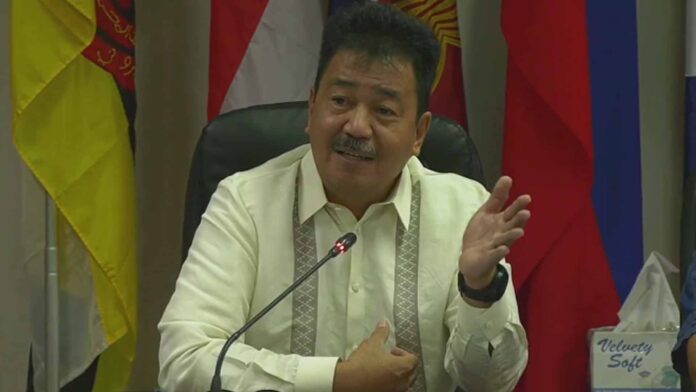The Commission on Higher Education (CHED) on Tuesday underscored the need for equity and financial support for the state universities and colleges (SUCs) in the country under the Universal Access to Quality Tertiary Education Act or the free tuition law.
In a television interview, CHED Chairperson J. Prospero de Vera III insisted it is the State’s duty to provide Filipinos, especially the marginalized sector, with access to quality higher education.
“It is our responsibility that we bring education to those coming from poor families, those that are coming from public schools, the children of indigenous communities, the children of rebel returnees,” he said.
De Vera made the statement following the proposal of Finance Secretary Benjamin Diokno to review the implementation of the free tertiary education program to ensure that resources are “optimally allocated.”
Under the proposal, Diokno cited the need to focus on the K-12 curriculum, conduct nationwide screening tests to filter who will be entitled to free college education, provide a four-year voucher for those who passed with an option to choose between public or private university and reduce the existing number of 117 SUCs in the country through mergers to avoid “wastefulness” and “inefficiency.”
However, de Vera said an admission test for all students desiring to enter higher education should be only equity-driven.
“If the admission test that they’re talking about is like the UPCAT (UP College Admission Test), it’s going to be disastrous because those who pass the UPCAT are students coming from relatively richer families, from urban areas, (those) who have the money to do review classes, (and those) who are more prepared to pass the admission test,” he said.
“For many families all over the country, the only chance to get your child educated is to go to the public university because public universities have quality education,” he added.
De Vera also cited an international study suggesting the importance for the government to invest in higher education given the high technical demand in the future workforce.
“All the studies of the World Bank now show that the highest return of investment is now in higher education,” he said.
De Vera said there are around 17 percent potential increase in earnings for those who finished college programs, higher than the 7 percent for those who finished secondary education and 10 percent in primary education.
The CHED is now documenting batches of “first-generation graduates” since the free tertiary education was implemented.
“For those that are very poor, we have seen a phenomenon for the last five years of what I call the first-generation graduates. These are students first in their family to set foot in the university, first in the family that graduated,” de Vera said.
“They will be the example to their community, every poor child who succeeds becomes the example of the community to have hope. Isn’t that what government is all about?” he added.
Financial aid
De Vera also highlighted the need to support SUCs nationwide with additional budget.
“The public universities need financial support because, especially during Covid, there was a significant shift of enrollment to public universities,” he said.
Based on the CHED’s data, the participation rate in higher education increased to 41 percent, much higher than 32 percent before the free tertiary education program was rolled out.
De Vera warned that if the funding is left neglected, the quality of higher education may suffer.
“It is something that we must address because the cost of education has increased… We’ll have to act on that, otherwise, the quality of education will be affected,” he said.
Despite this, de Vera still lauded public universities for “outperforming” their funding by producing quality graduates and securing spots in global university rankings.
“That’s why it is in fact a miracle that many of our universities are globally ranked despite the meager subsidy of the government,” he said.
“You just have to go to the universities in other ASEAN (Association of Southeast Asian Nations) countries, medyo mahihiya ka (You will be ashamed). The amount of money invested by governments in universities in Thailand, in Malaysia, in Indonesia is far higher than what we are investing,” he added.
Under the Marcos administration’s 2024 National Expenditure Program, PHP105.6 billion budget is for SUCs, with around PHP21.7 billion allocated for free tertiary education. (PNA)






